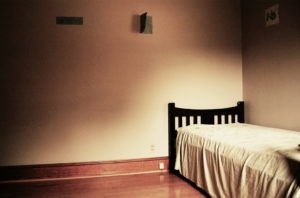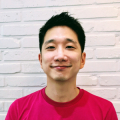You have no items in your cart. Want to get some nice things?
Go shopping
‘When writing fiction, listen to your body. It has a feel for what is right, what comes next, a feel it has internalised through a lifetime of reading. This is the “inner rhythm”. It is a combination of language and biology.’—From my nightstand notes
The night air, even inside my small apartment, conducts sound better at night. The lower temperature allows molecules to be spaced closer together, giving sound waves more traction. When I turn off the television, the molecules settle around me in a potent, intimate silence. I’m not alone in this silence. First of all, there is the silence. There are the books (not that many). There are the people on the television (cable was still a thing in my twenties). I suppose I could call a friend or a guy. I live in central Seoul, it takes only half an hour to go anywhere. But I don’t move. I don’t pick up my phone. I don’t open my messenger app on my computer. I think of turning on classical music radio but I stop myself.
The silence. It lives by night and shyly retreats by day, into the shadows underneath the furniture. Intimidated by the light, by my anxieties and their noiseless clamour, it folds into itself and waits for the sun to fall. Then, as I put on a news broadcast and prepare a simple dinner, it cautiously expands under cover of the clatter of pots and jars and Korean politicians’ teeth.
After I’m done with my meal, it curls up on the floor between the bed and television, waiting for me to stop channel-surfing. Once the television is switched off, it unfurls itself, blooming into the empty space of the room, its invisible, microscopic pods gripping every surface of the apartment, every out-turned book spine, and settles against my brain, ready to communicate and amplify each tremor and blink.
This is the most creative time of day for me. How could it not be? ‘Creative’ and ‘being an artist’ begins with being sensitive to one’s own feelings and thoughts no matter how minute and fleeting. What ‘non-creative people’ (and there really are such people) would dismiss as an idle or meaningless whim, an artist listens closely to, gets to the bottom of, brings to its natural conclusion, in other words, plays with. This is why artists are so sensitive. And why so many of them work either in the early morning or at night. Because the noises and other distractions of daytime overwhelms the senses, distracts them, and the would-be artist has no wherewithal or time to listen to what they are really thinking and feeling over the din of living. This state of affairs has become worse with twenty-four-hour news, readily available video streaming, and smartphones that can now follow us into the shower. There is no space for silence, that great amplifier, to unfurl.
Ten years later, however, I am not writing this at night. I am writing this over the sound of my husband doing the dishes as he listens to an American political podcast. I don’t know how anyone can think over the urgent earnestness of Michael Barbaro et al, but perhaps that’s the point. It’s the morning, you’re getting ready for work, and you want to steel yourself for the rest of the day. No time for productive members of capitalist society to have irrelevant fancies that seep mental energies that ought to be used for filling out reports for marketing useless widgets that will end up in some landfill. In our world, only art that can be monetised has a point.
But on the other hand, someone has to do the dishes, and that’s my chore, but I have a deadline so he has taken over. This is what it’s like being in any committed relationship. There is more of the noise of life, and much less silence to work from, but you also grow six extra pairs of limbs overnight (a good partnership exceeds the sum of its parts, or limbs) and gain another sun.
If he went out of the room, it would be grey and empty.
If he did not go out of it, how could she concentrate?
—Possession by AS Byatt
Before marriage, I had acres of silence to work from, but I wasted a lot of it on late-night reality television and weirdly tragic Korean cinema from the seventies and eighties. I did not know what to do with it. I did not know how the blips and flashes of insight inside my mind could be turned into words, into literature. I did not use the silence to listen to myself, or spend it reading poetry, thinking about novels, or learning a new language. Or writing. I had a room of one’s own, but I failed to be Virginia Woolf. Only when I learned how precious silence was did I begin to appreciate what pockets of it appeared during the day. On nights I couldn’t fall asleep, I lie in bed for hours listening to my own thoughts and feelings, observing what emerges from the matrix of silence. I’ve had many discoveries this way. Once, an entire novel emerged from the silence.
Jaron Lanier in Ten Arguments for Deleting Your Social Media Accounts Right Now discusses the ‘engagement’ that algorithms strive for, that in order to keep users addicted, Facebook and Twitter keep pushing content proven to provoke that easiest of ‘engagement’ emotions: outrage. No wonder Trump got elected president. No other stimulus provokes more outrage, more social media engagement. In the face of the white-hot light of outrage, silence and creativity shrink away. Artists will always need to stay political and politically engaged while somehow maintaining their necessary artistic sensitivity. Many artists—and non-artists—have seen their energies hijacked by outrage and are still learning how to reclaim their time. I would like to suggest silence as a balm, a starting point. We have to engage, we must engage, but we also need to let the blank canvas of silence unfurl, to allow our inner voices to be heard and recorded.
For now, I try to contact silence like an old friend I’ve had to neglect recently because of busywork, or because I got married, or because the rest of the world seems to be falling apart. I reach out when I’m in the shower, on sleepless nights, or when I wake up too early from jetlag, I reach out and we reconnect over our shared memories together. Sometimes, the silence will mention a memory I don’t have. When did that happen, I ask it. Tell me about it. Tell me all about it.
And a new story emerges.

About Anton Hur
Anton Hur was born in Stockholm and currently resides in Seoul. His writing and translations have appeared in Words Without Borders, Asymptote Journal, Slice Magazine and others. He is the recipient of a PEN Translates award from English PEN, a Daesan Foundation literary translation grant, and multiple LTI Korea translation grants.




